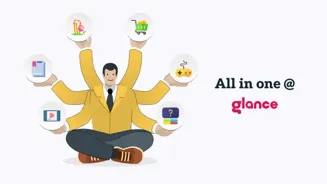Unlock Your Financial Potential: 10 Essential Skills for Professionals to Master. Dive in for financial success!
In today's fast-paced world, possessing strong financial literacy is no longer optional;
it's absolutely crucial for professionals across all sectors. Gone are the days when financial matters were solely the domain of accountants and financial advisors.
Now, every individual needs to be financially savvy to navigate their career, manage their earnings, plan for the future, and achieve financial independence. This means understanding the fundamentals of money management and demonstrating an awareness of investments, debts and savings.
These concepts, when grasped, will play a pivotal role in reaching professional and personal goals.
This article will highlight the 10 essential financial literacy skills every professional should strive to master, empowering you to take control of your financial destiny and build a secure future.
Budgeting and Expense Tracking: Know Where Your Money Goes
The cornerstone of financial literacy is the ability to create a budget and meticulously track your expenses. It sounds simple, perhaps, but the effect is great. The first thing to do, is to create a regular schedule. The next thing to do is understand your income and expenses.

This involves identifying all sources of income and categorizing your expenses into fixed costs (rent, utilities, loan payments) and variable costs (food, entertainment, transportation).
There are great budgeting tools available, such as mobile apps or spreadsheets, to record your spending.
Once you track your expenses for a month or two, you'll have a clear picture of where your money is going. Then, you will know which expenses you can reduce.
Budgeting is not about restriction; it's about intentionally directing your funds towards your financial goals and aligning spending with your personal values. A good budget is adaptable. Adjust it regularly. This can be done monthly or quarterly.
Understanding Credit and Debt Management: Borrow Wisely, Repay Promptly
Credit scores are very important in today's world as it defines the ability to take loans for big purchases. Understanding these and improving it provides you a lot of power and flexibility.
Credit or debt, when used wisely, can be a powerful tool for personal advancement, enabling investments in education, homeownership, or business ventures. However, mismanaging credit can lead to a debt trap, negatively impacting your financial well-being.
As a professional, it's crucial to comprehend how credit works, the factors that influence your credit score, and the importance of responsible credit card usage.
Develop a plan to minimize high-interest debt, prioritize timely repayments, and avoid accumulating unnecessary debt.
Remember, a good credit score opens doors to favorable loan terms and financial opportunities.
Saving and Investing: Building Wealth for the Future
Saving and investing are very important components of financial literacy which will help you build a strong financial future. Investing early and consistently is key to creating wealth over time, thanks to the power of compounding interest.

This skill involves learning about different investment options, such as stocks, bonds, mutual funds, and real estate, and understanding their associated risks and rewards.
Start early and allocate a portion of your income to long-term investments.
Consider consulting a financial advisor to create a diversified investment portfolio that aligns with your risk tolerance and financial goals. Also, savings should be prioritized. Develop the rule of at least saving 10-20% of the income after all expenses.
Retirement Planning: Securing Your Golden Years
Retirement may seem distant, however, it's essential to start planning early to ensure a comfortable and financially secure future.
This skill involves estimating your retirement expenses, understanding different retirement savings plans (like employee provident fund, public provident fund, or national pension system), and making informed decisions about your investments.
If your company provides employee benefits, study the options in great detail.
It's never too early to start contributing to a retirement fund. Take advantage of employer-sponsored retirement plans and consider opening a retirement account to supplement your savings.
As you progress in your career, regularly review and adjust your retirement plan to ensure it remains aligned with your evolving goals and circumstances. Do your research and prepare for your retirement.
Insurance Planning: Protecting Yourself from Financial Risks
Life is full of some risks; health emergencies, accidents and unexpected situations can happen anytime. Being covered in these times of uncertainties provides a financial relief. Buying insurance policies is an important tool to protect ourselves from financial risk.
These policies cover health emergencies, accidents, unexpected situations etc.
Selecting the right insurance involves carefully evaluating your needs and choosing types of insurance to mitigate those potential risks. Health insurance is something everyone should have.
Tax Planning: Minimizing Your Tax Burden Legally
Taxes are an inevitable part of being a earning professional. An understanding of the tax system and legal strategies to minimize your liability is important for maximizing your income.
This skill involves learning about different types of taxes (income tax, property tax, goods and services tax), understanding tax deductions and credits, and complying with tax regulations.
Seek support from a tax consultant or tax planner to ensure you’re taking advantage of all legal tax saving opportunities.
You should also be aware of any changes in tax laws that may affect your income and investments.
You also need to comply with existing tax laws which can save you from legal issues in future.
Financial literacy enables individuals to make informed decisions about saving, investing, borrowing, and managing money effectively.
It helps in achieving financial stability, planning for retirement, and building a secure future for themselves and their families.
By mastering these skills, people can confidently navigate the complexities of the financial world and achieve their financial goals.













